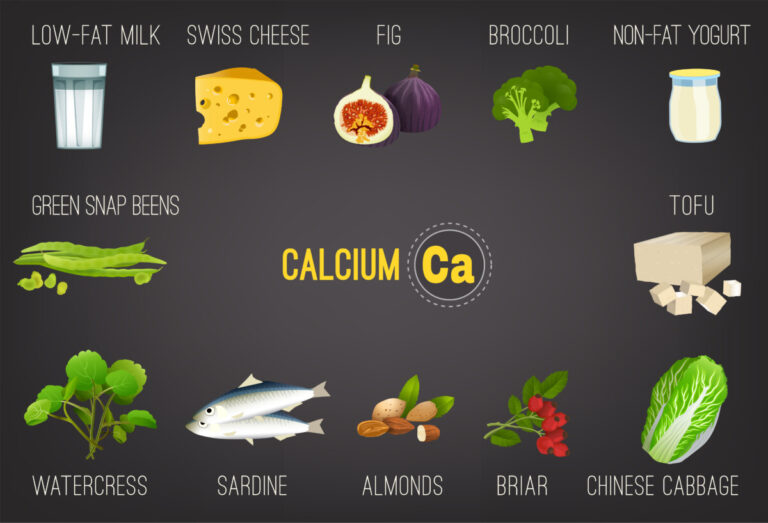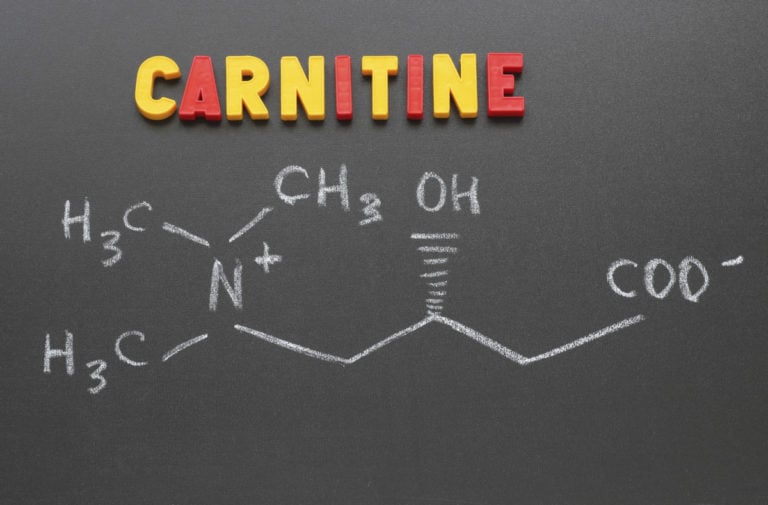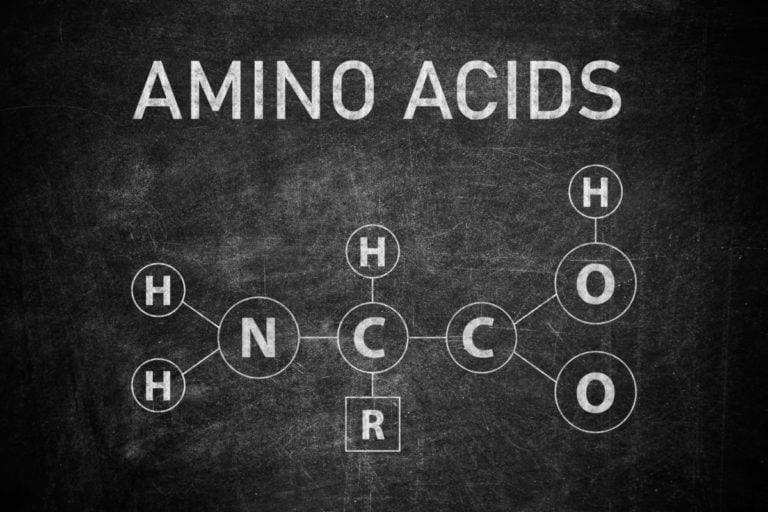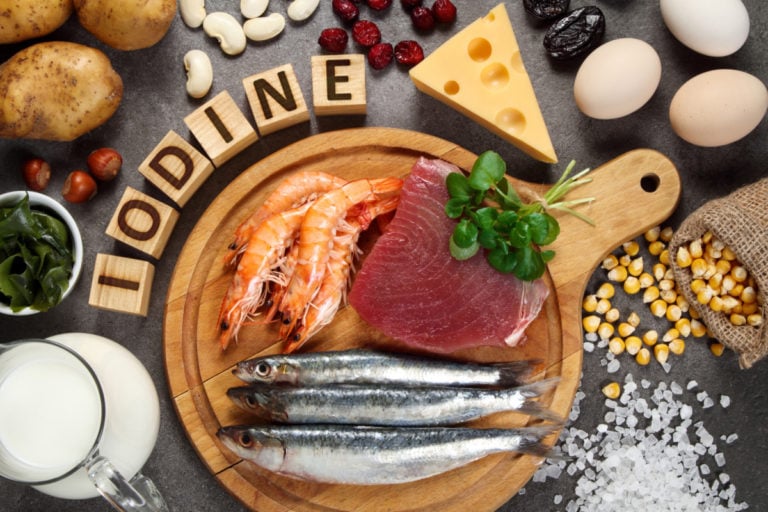Potassium is an electrolyte important for homeostasis, that is, the balance of the body. It affects, among other things, the correct contractions and work of the muscles, as well as the energy metabolism of the heart.
Provides maintenance of acid-base balance. The important information is that both its deficiency and excess can be dangerous. Therefore, possible potassium supplements should be carefully considered!
Normal potassium in the blood
The average daily intake of potassium is about 100 mmol, of which 90% is excreted through the kidneys, 5% with sweat and 5-10% with feces.
Most of the potassium in the human body is found in the intracellular compartment, which means that 90% (3500-4000 mmol) of potassium is the entire systemic potassium pool, of which:
- 75% is in the muscles;
- 7-8% is found in the liver and red blood cells;
- extracellular fluid contains about 10%, of which only 1% is in plasma;
- 8-9% of potassium is in the skeleton (which is remarkable and memorable).
Normal potassium values for adults are: in serum 3.6-5 mmol / l, in whole blood 43.5-48.7 mmol / l. It is also good to determine the concentration of other elements such as sodium, calcium and magnesium – for a better idea of the balance of electrolytes in the body.
Potassium functions
The most important role of potassium is to regulate and maintain the correct ionic balance. In addition, potassium performs many other equally important functions in our body, including:
- helps regulate pH and osmotic pressure;
- increases the permeability of cell membranes;
- participates in the release of insulin from the pancreas;
- activates many cellular enzymes;
- affects proper contractions and muscle function;
- in the case of the heart muscle, it is involved in the production and conduction of impulses, which affects the energy metabolism of the heart;
- ensures the maintenance of acid-base balance;
- participates in the processes of protein synthesis and carbohydrate metabolism.
Potassium in foods
Current recommendations for a minimum potassium requirement are around 40-50 mmol/day. Studies show that residents of urban areas consume an average of about 60 mmol/day. This is bad for the elderly, whose potassium intake is only 25 mmol/day.

What foods contain potassium:
- meat and fish – poultry, veal, pork, cod, halibut, trout, carp, mackerel, canned fish and meat, smoked fish;
- cereals, cereals, bran – buckwheat, rye, barley;
- most vegetables – legume seeds (white beans), potatoes, sweet potatoes, Brussels sprouts, tomatoes, horseradish, beets, beets, parsley, broccoli, zucchini, turnips, garlic, spinach;
- most fruits – avocados, watermelon, gooseberries, peaches, bananas, citrus fruits, raspberries, melons, apricots, currants, grapes, cherries;
- seeds, nuts and dried fruits – walnuts, hazelnuts, pistachios, almonds, pumpkin seeds, sunflower seeds, poppy seeds, dried apricots, prunes, raisins, figs, dates;
- others – cocoa, chocolate made from unroasted cocoa beans, concentrates such as tomato concentrates, freshly squeezed fruit and vegetable juices.
Hypokalemia and hyperkalemia
Potassium is one of the most abundant cations in the body. The concentration of extracellular potassium should be maintained within the range of 3.5-5.0 mmol/l. It should be noted that under physiological conditions there is a very large concentration difference between intracellular and extracellular fluid.
Due to the presence of the so-called concentration gradient on both sides of the cell membrane, the proper functioning of muscle cells, including the heart muscle, is possible.
It has long been known that changing the concentration of potassium ions is very important, especially in people with cardiac arrhythmias, heart attacks or coronary diseases.
Hyperkalemia (excess potassium)
There is not really a single general definition of hyperkalemia, but it can be broken down into:
- mild – occurs when the serum potassium level is in the range of 5.5-5.9 meq/l
- moderate – occurs when the concentration of potassium in the blood serum is in the range of 6.0-6.4 meq / l
- severe – concentration above 6.5 meq/l
The most common causes of hyperkalemia are:
- renal failure – acute and chronic renal failure, functional disorders of potassium excretion, for example, adrenal insufficiency;
- Addison’s disease;
- rhabdomyolysis, or muscle breakdown;
- increased leakage of potassium from cells (cell destruction, acidosis);
- massive burn injuries;
- drugs – such as ACE inhibitors (angiotensin-converting enzyme inhibitors), aldosterone antagonists;
- sepsis;
- excessive potassium intake – due to diet or as a result of excessive, inadequate (!) supplementation.

Symptoms of hyperkalemia, especially mild to moderate, may be mild and are most often discovered incidentally. Severe hyperkalemia can lead to:
- Nervous system disorders such as confusion, apathy, inappropriate sensation of stimuli;
- disorders of the muscular system, such as decreased muscle strength, fatigue, convulsions and even muscle paralysis, especially of the lower extremities, flaccid paralysis;
- cardiac disorders such as bradycardia, extrasystoles, ECG changes.
In the case of treating hyperkalemia, it is necessary to determine the concentration of potassium ions in the blood serum, take an ECG picture, and on this basis, prescribe three different treatments to protect the heart muscle, move potassium ions into the cells, and remove potassium ions from the body.
Hypokalemia (potassium deficiency)
The second, much more common disease caused by potassium deficiency is hypokalemia. As in the case of hyperkalemia, the division into hypokalemia is also considered here:
- mild – serum potassium concentration below 3.5 mEq/L
- moderate – potassium concentration in the range of 2.5-3.0 meq/l
- severe – potassium concentration below 2.5 mEq/l
Symptoms of hypokalemia largely depend on the duration of potassium deficiency, the intensity and additional disturbances of other electrolytes and acid-base balance. It is worth paying attention to the fact that potassium deficiency is often accompanied by magnesium deficiency.
The main symptoms of hypokalemia include:
- Disorders of smooth muscle contraction, including destruction of striated muscle tissue (rhabdomyolysis);
- smooth muscle weakness, including constipation, intestinal obstruction, and paralysis;
- heart rhythm disturbances;
- impaired kidney function;
- Peripheral and central nervous system disorders such as hyperactivity, lethargy, loss of concentration, drowsiness, excessive thirst, abnormal sensation of stimuli.

The most common causes of hypokalemia are diuretics (loop diuretics, thiazide diuretics, diuramide), strong laxatives, chronic diarrhea, malnutrition, low potassium diet, excessive loss of potassium by the kidneys (primary and secondary hyperaldosteronism, diabetic ketoacidosis, excessive diuretic conditions). Potassium is lost through the digestive tract (diarrhea, vomiting, fistulas) and through the skin (excessive sweating, burns).
Remember that hypokalemia is a life-threatening condition and you should aim to correct your potassium deficiency as soon as possible.
Potassium supplements
We currently have access to organic and inorganic potassium salts on the market. In pharmacies, you can find potassium preparations in any form: tablets, microcapsules with a delayed release of potassium, syrups, effervescent tablets. In addition, potassium is present in almost all vitamin and mineral preparations.
Inorganic compounds include sulfites, chlorides, carbonates and oxides. Organic compounds, in turn, are citrates, gluconates and fumarates.
People with an increased need for potassium are, first of all, athletes, people with excessive sweating, alcoholics, people with a low potassium diet, consuming a lot of salt. In sick people, an increased need for potassium has:
- people with bulimia or anorexia;
- people with digestive disorders – frequent vomiting and diarrhea;
- diabetes mellitus;
- people with congestive heart failure;
- people with burns.
It should be noted that due to the potential for serious side effects, the decision to supplement with potassium should be closely linked to professional medical advice!
Interaction of potassium with other drugs
- ACE inhibitors, high blood pressure drugs – increase potassium levels. Elevated potassium levels caused by ACE drugs are more common in people with impaired kidney function and in diabetics.
- Digoxin – low levels of potassium in the blood greatly increase the likelihood of digoxin toxicity.
- Magnesium – magnesium deficiency resulting from impaired potassium retention, and vice versa – excessive potassium levels can affect magnesium absorption.
- Sodium – excessive sodium intake can eliminate potassium (a sodium antagonist).















